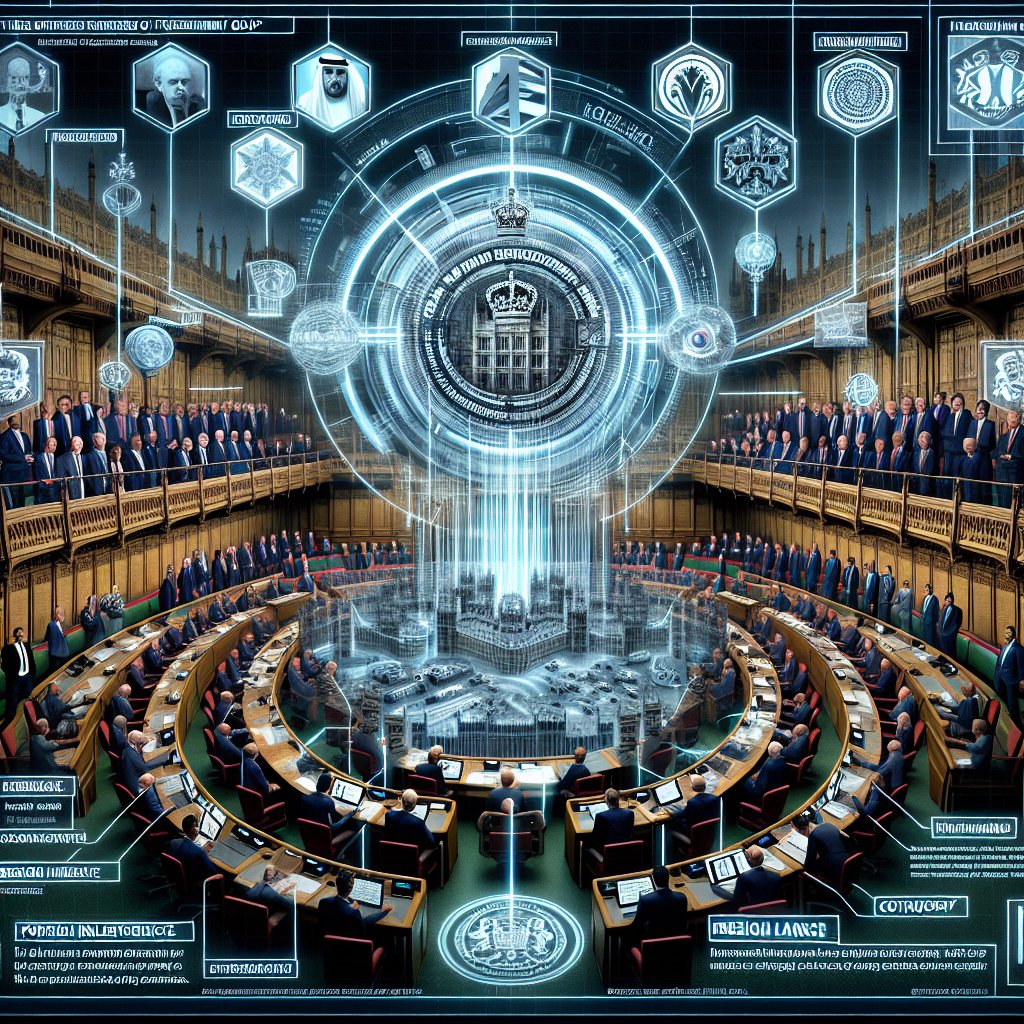Image created by AI
Battle for the Press: Concerns Over UAE Bid for Telegraph Ownership Stir UK Debate on Press Freedom
The corridors of power in the United Kingdom are echoing with heated debates as the British government mulls over whether to give the green light to a controversial takeover of one of its most storied newspapers, the Daily Telegraph. Media Secretary Lucy Frazer stands at the crossroads of a decision that could reverberate through the annals of press freedom in the country. A UAE-led bid has gripped the nation with a palatable tension over potential foreign influence on British media.
It's a situation laden with irony and historical significance. The Daily Telegraph, a newspaper that has long been an integral part of the British political landscape and a voice within the Conservative Party, could soon find itself under the ownership of entities from the United Arab Emirates. This prospect has alarmed a diverse range of British society, tying together the likes of politicians, journalists, and former intelligence officials in a chorus of opposition centered around the sanctity of independent media and the tenets of democracy.
At the heart of the bid is an investment group RedBird IMI, supported by Sheikh Mansour bin Zayed Al Nahyan, Vice President of the UAE and a member of the Abu Dhabi royal family. While Sheikh Mansour is recognized in the sporting world as the owner of the successful Premier League club Manchester City, his interests in the media sector have sparked a different kind of scrutiny.
Britain’s approach to foreign investments has traditionally been permissive, maintaining an open-door policy that has welcomed capital from across the globe. But this bid has struck a different chord, leading the government to trigger an investigation into the deal's potential impacts on freedom of expression and journalistic accuracy. Both being cornerstones of functional democracy, their perceived endangerment has led Frazer to consider either blocking the transaction or initiating a lengthier probe that could stall the process for months.
The breadth of anxiety over this deal has manifested in a letter penned by about 100 MPs to Frazer, emphasizing the essential role of free press in democracy and the perils posed by foreign governmental control over major UK media organizations. This, they argue, could be a turning point that the UK should avoid at all costs. The Barclay family, whose tenure as owners ended amid financial complications, awaits the final verdict as RedBird IMI stands by, having assisted in settling a significant debt and potentially poised to reshape the British media landscape.
Adding to the cacophony, columnists and editors from within the Telegraph and the Spectator magazine have articulated their reservations, not shying away from criticizing the takeover's implications. Their argument is underlined by the notion that the trust the public places in news could be fundamentally altered should ownership pass into the hands of a foreign government.
Responding to the swelling tide of concern, RedBird IMI has repeatedly pledged to uphold editorial independence and to preserve the existing editorial team. They assert that the credibility and reputation of the publications are non-negotiable.
Yet, the message from onlookers remains clear and incisive: the bond between the press and its readers, a dynamic interplay that underpins informed citizenry and holds power to account, stands at a precipice. The essence of Britain's democracy is in the spotlight, and the world watches as the British government contemplates a decision that could recalibrate the principles of media ownership and press freedom.










